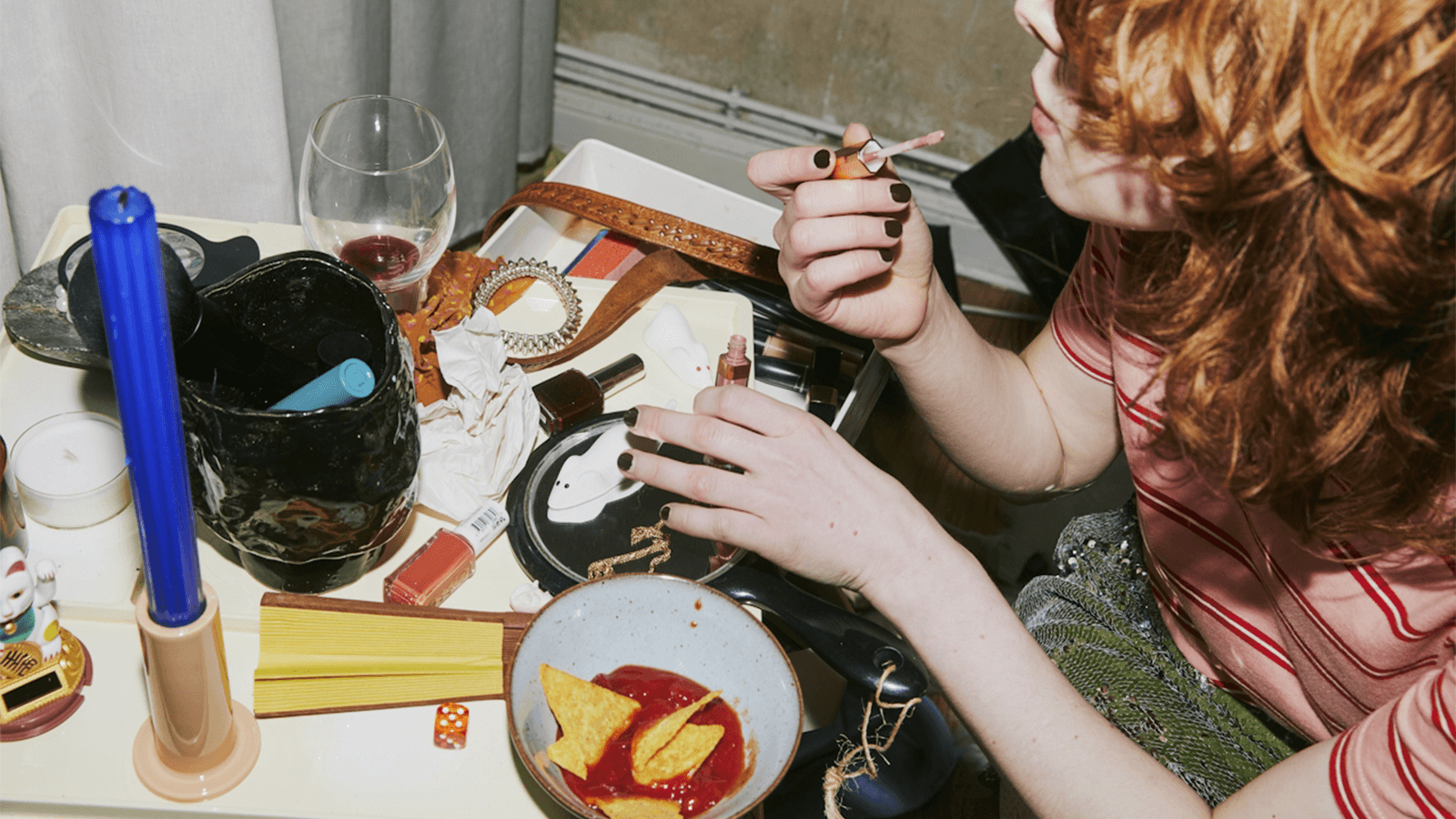“Inside All Of Us Is A Gross Girl” – Ione Gamble On A Powerful New Era Of Unacceptable Women
As women, so much of our lives are spent curtailing the nasty, feral monster that lives inside us. We all swallow the satisfaction of squeezing a huge spot, pretending that the pop of a yellow head repulses us. We deny we’ve ever skipped a shower, claim we’ve never let our hair stay greasy for a second, third (and fourth) day in a row. We profess to have absolutely never picked our noses, or pulled at a scab just for the fun of it.
While these tiny self-corrections may appear harmless – just an indicator of ‘well-mannered’ social cues – the fact that many of us can’t even admit these behaviours to our closest peers tells a darker story about the ways in which our lives are shaped by patriarchy and oppressed under capitalism.
Desirability, more often than not, equates to a woman’s ‘usefulness’ to society. We’re conditioned to believe that as long as we are beautiful enough, quiet enough, and polite enough, we’ll be accepted. That we’ll have it all: a successful career, friendship group, and family, as long as our mask of desirability never slips and our darkest thoughts never show on our faces.
But in recent years, a cursory doom-scroll would suggest that the shackles of acceptability are slowly being lifted. As social media trends such as Feral Girls, Pearl Memes and the Good For Her genre infiltrate our feeds, women everywhere are beginning to say the quiet parts out loud.
The commodification of fourth-wave feminism in the mid-2010s left us all fatigued. Sick of being sold razors under the guise of self-love and urged to sign up to exclusive private members clubs that would make us better ‘girlbosses’, Millennial and Gen-Z women turned towards media that more accurately represented them. From rotting in bed to #GoblinMode, we thrived for representation of the good, the bad – and most importantly the ugly – of our experiences.

TikTokers became obsessed with documenting their ‘Fleabag’ era, Gone Girl became the poster girl for a generation and Frances Ha clips comforted all of us who felt like failures for not having it all figured out. While these pieces of culture were by no means new, they were viewed through a fresh lens by a younger generation who saw themselves in the characters and narratives, regurgitated via social media. By adopting these stories as their own, young women have seemingly begun to usher in a new era of female unacceptability – one in which burping in public is still a faux pas, but telling TikTok about it afterwards is a strike against the patriarchy.
But while we may have made leaps and bounds in terms of not concealing our true abject form compared with our behaviour both online and off a decade ago, the normalisation – and even glamorisation – of messy women has not been without its teething problems. The mainstreaming of these narratives has, at times, left those who undoubtedly need them in the dust. We see conventionally beautiful women mess up their lives, but have little narrative time for those who do not fit into narrow beauty standards – although we would benefit the most from seeing their realities on screen.
No longer are we wholly constricted to gender stereotypes that ensure grossness is viewed as weakness. And while films such as Bones And All and Piggy slowly unpeel the layers of shame we’ve lived with for generations, young women are using social media to undo these patriarchal trappings in real time. Inside all of us is a gross girl, and while we all may feel a little less embarrassed to admit it, we must be cautious of not allowing these sentiments to disappear as quickly as they arrived. To fully embrace ourselves as often disgusting is not only a freeing act, but one that could truly alter how we view female narratives both on screen and in our own lives.
Ione Gamble is a writer and editor based in London. She is the founding editor-in-chief of Polyester Zine and the author of Poor Little Sick Girls




